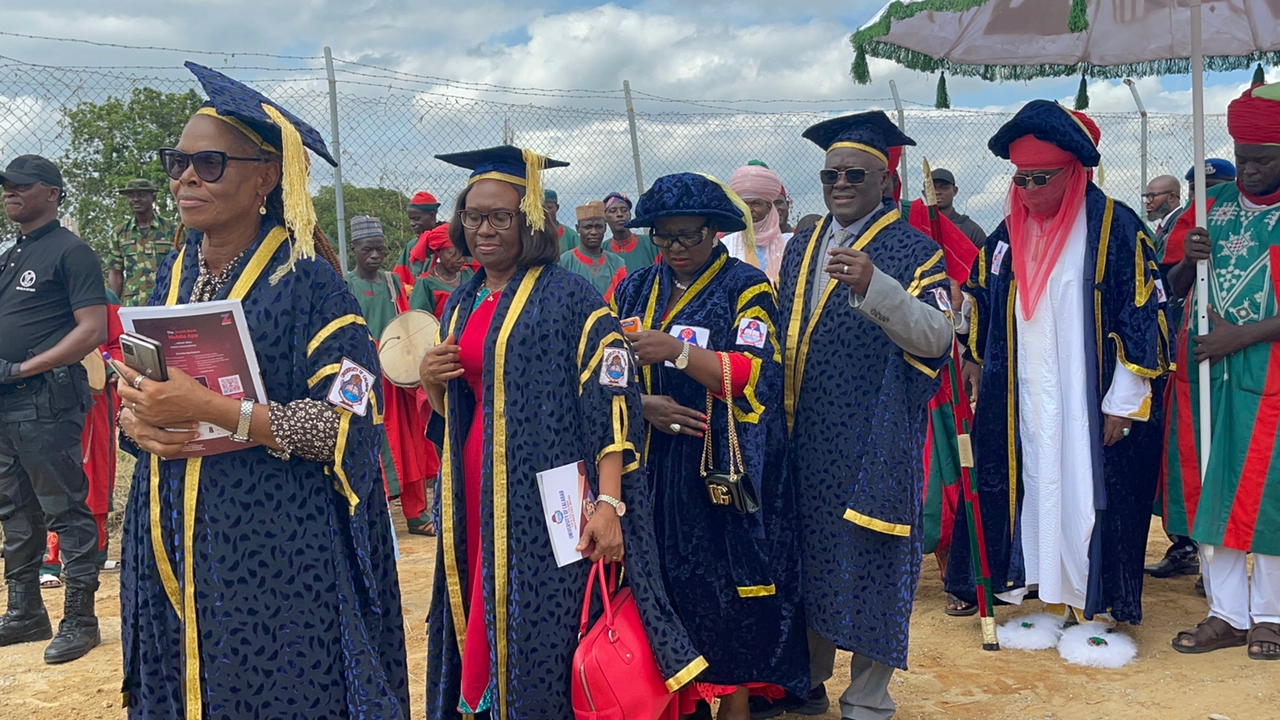Niger Delta
UNICAL VC Seeks TETFUND’s Assistance In Library, Senate Chamber Building

Vice Chancellor of the University of Calabar, Prof. Florence Obi, has appealed to the Tertiary Education Trust Fund (TETFUND) to come to the aid of the university in building a befitting library and a standard Senate building.
Obi made the appeal, Friday, in Calabar during the 35th convocation ceremony of the University of Calabar.
The convocation was held for first degree graduates of the institution, masters, diplomas and postgraduate diplomas; while the award of doctorate degrees was scheduled for Saturday.
She also called on the Niger Delta Development Commission (NDDC) to come to their aid in infrastructure development of the institution.
“Much as we do our best to create the conditions for the university we desire within the context of our realities, we have to let you know that the institution is hamstrung largely by paucity of funds, and many other problems.
“Most topical in the demands of the university is the provision of electric power which gulps a greater part of our internally generated revenue, leaving us struggling to meet other important needs.
“We are also in need of a standard senate building befitting of a second generation university of our standing.
“The university has for the past 2 years been without a central library due to a major structural defect which led to it being cordoned off following the advice of professionals in the building industry.
“We appeal for a special intervention from TETFUND to urgently come to our aid as there is no university without a functional library”, she said.
The VC also appealed to spirited individuals to intervene in the building of hostel accommodation for students of the institution.
She noted that the university was ready to give all the cooperation to any individual or corporate body to achieve this.
She said the university, with a population of over 36,000 students, has only 2,400 bed spaces for the accommodation of students.
“This accounts for less than 5 per cent against the National Universities Commission recommendation of 30 per cent of students that should be accommodated on campus”, she added.
She disclosed that the university was awarding 5,445 first degrees and 171 diplomas to persons certified worthy in character and learning in keeping with the academic tradition.
“Out of the 5,445 for first degrees, 11 persons distinguished themselves with First Class Honours, 1,062 with Second Class Upper Division, 3,647 have Second Class Lower Division, 721 got Third Class, while 4 have the Pass Degree.
“The Diplomas are as follows: Distinction 2, Merit 111, Credit 45, Lower Credit 1, Pass 11 and Certificate of Attendance 1.
“At the post-graduate level, we have 2,159 persons who have earned higher degrees and diplomas as follows: 553 PhDs, 1,104 Masters and 502 Post Graduate Diplomas”, she added.
Also speaking, Alhaji Aminu Ado-Bayero, Chancellor of the university, urged the graduands to make the best choice of the path they have chosen to follow.
Ado-Bayero, who is also the Emir of Kano, commended the VC for her outstanding leadership and for transforming the institution within the two years she assumed office.
He assured the university management that his vision as Chancellor was to make the University the best university in Sub-Saharan Africa.
Also, Retired Gen. Martin Luther-Agwai, Pro-Chancellor of the University, said the university was still grappling with inadequate facilities and funding.
Luther-Agwai said there was a need for the university to continue to institutionalise its relevance and civil engagement beyond the convocation ceremony to a more meaningful contribution to national development.
He assured that the university council would work hand-in-hand with the management to address some of the peculiar challenges.
One for the graduands, Mr Cleverty Njong, who had a Cumulative Grade Point Average of 5.00 in Law, Master degree, said his success came as a result of dedication and commitment to academic activities.
Niger Delta
Stakeholders In Delta Seek Stronger GBV Action, Women’s Leadership

Niger Delta
C’River Suspends Taskforce Activities Over Drivers’ Protest

Niger Delta
A’Ibom Assembly Urges More Private Investments In Agriculture

-

 News4 days ago
News4 days agoAmend Constitution To Accommodate State Police, Tinubu Tells Senators
-

 Politics4 days ago
Politics4 days agoSenate Urges Tinubu To Sack CAC Boss
-
Business4 days ago
Crisis Response: EU-project Delivers New Vet. Clinic To Katsina Govt.
-
Business4 days ago
President Tinubu Approves Extension Ban On Raw Shea Nut Export
-

 News4 days ago
News4 days agoDisu Takes Over As New IGP …Declares Total War On Corruption, Impunity
-
Business4 days ago
Fidelity Bank To Empower Women With Sustainable Entrepreneurship Skills, HAP2.0
-
Business4 days ago
President Tinubu Extends Raw Shea Nuts Export Ban To 2027
-
Sports4 days ago
NDG: Rivers Coach Appeal To NDDC In Talent Discovery

